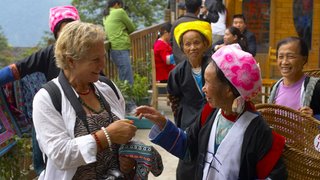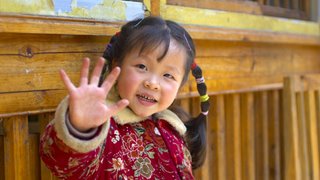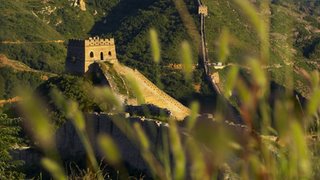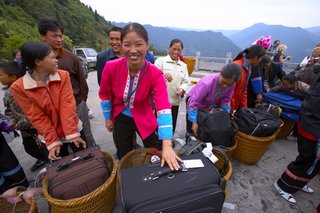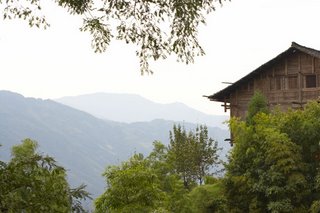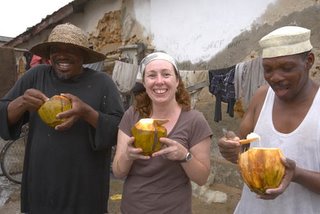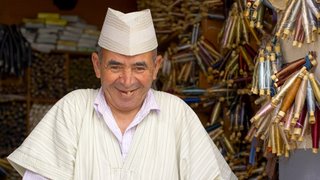
I sat in my local coffee shop and read a few choice bits from the day’s papers. The cafe had recently changed hands and so had the brand of coffee - the rich and full experience of last week now replaced with a cheaper substitute that will be tolerated by the majority of patrons.
It's a similar scenario in the media.
The market appeal for genuine quality and full bodied analysis of issues is waning. I flick through the pile of weekend papers sitting idly on the table and find the optimistic words, and intelligent smile, from a profile piece on Maxine McKew. For my way of thinking her style of journalism is a standard by which others can judge themselves. She's not high profile, just high quality. The story suggests Maxine has an underlying enthusiasm for the future of this country and our ability to achieve greatness. I look for tones of desperation in her words but wonder if the sub-editor has removed the evidence i had expected to find between the lines.
Far more satisfying to my mood are the words of Phillip Adams, who offered some sharp and comical pretence to paint a vivid picture of the fantasy world we live in. He writes of an imaginary world where the police and politicians target the drug barons who kill Australians with fervour and zeal - not illicit drugs of course, but the legal varieties that claim thirty times the number of deaths each year compared to teenage tripping rave enhancers and the like. Cigarettes and alcohol simply do it more slowly... and have a better lobby group to keep the government and the political parties funded.
The most pathetic piece of media discussion this week goes to the debate over Qantas closing down 480 jobs in Sydney. The PM proudly talks of 'saving jobs' from overseas competitors. Pure double-speak. While 71 new jobs might be created, with an outsourced company in Melbourne, 480 positions and their entitlements have been axed. That's not a saving, that's a devastating collapse.
A Liberal right-wing think tank member suggested, during a radio interview, that effected workers (at Qantas and across the entire country) face the 'challenge' of retooling and competing better with international resources. He was incensed by the alternate notion that consumers should pay a higher price so that these men could keep their jobs. Or so the theory goes. The relationship between the price of an airfare and record profits for Qantas (not to mention record salaries for executives) seemed unimportant to him - only the alleged blood sucking greed of workers got him sufficiently emboldened to speak up.
But this man has never stepped in the shoes of these semi-skilled workers that he feels need to face-up to the 'challenge'. This man has a professional career that has never asked of him the same. The men he refers to do not have his education, wealth or self-congratulatory confidence. The challenge in question is more of a nightmare for such individuals, men who have been stripped of opportunity and face an uncertain future.
Why is it so difficult for compassion to enter into a discussion where people's lives and livelihood are concerned?
The same right-wing spin-doctor quite liked the tone of Senator Nick Minchin this week, and believes that it's ridiculous to support a system of arbitration because it 'creates' a division between employers and employees that wouldn’t naturally exist. He thinks we all can live in a utopian world where the Haves and Have-nots co-exist without adversarial intentions. That's a remarkably blinded viewpoint even for someone who has never had to negotiate work conditions with 1,000 equally semi-skilled men standing in line behind him waiting to apply for the same job. He readily admits that he believes executives should not be held to the same standard of competitive negotiation - management level jobs bring value to the company and hence you shouldn't go cheap on them. The workers however enjoy no such consideration, it is they who must bear up to the 'challenge' and be glad for the privilege what’s more.
As an aside; there is a very simple reason why the arbitration commission was setup in the early 1990s. It was because employers did not want to pay a living wage, not if they didn’t have to. Nothing has changed since 1904. Absence of arbitration simply translates into giving all power to the party who holds the most leverage. This is usually the employer, except for those few really big unions who may not be able to act with integrity; and hence give all unions a bad name.
Earlier this week the ABC's premier current affairs program, Four Corners, presented an insightful story about the pervasiveness of marketing in our culture and the final frontier of targeting infants. Cradle-to-grave consumerism. The group of people trying to highlight the dangers made a lot of sense and any logical analysis of the situation would ring alarm bells. We are creating a problem by allowing un-feted corporate culture dictate the terms of our society. But what I saw from this story was the revealing nature of how we as adults in a 'democratic' society simply stop learning.
If the right-wing think tank was made up of people who continued to learn about the real world, instead of dedicating their lives to increasing their own wealth, then a very different style of conservative doctrine may become evident.
When do people stop learning? When people understood issues they make better decisions, especially where the democratic process is concerned. But these days we stifle critical thinking, we cut finding to education and we stop the process of learning in our adult lives. News is not about knowledge, it's just entertainment.
Ten years ago the Australian Foreign Affairs Minister was told of systems to utilise wheat transportation payments to redirect funds to Iraq and it's government. This made page twelve in the Herald Sun. What does this say about our society and our willingness to know the truth? There should have been thousands upon thousands of people protesting on Canberra. But there wasn't. Because it's futile. We've all given up. We just don't care anymore.
Or is it because the media has stopped reporting the news?
Entertainment is cheaper.
